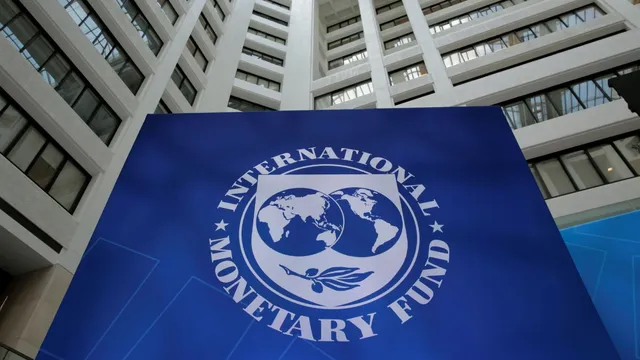- By Supratik Das
- Fri, 23 May 2025 11:18 AM (IST)
- Source:JND
The International Monetary Fund (IMF) on Friday justified releasing a 1 billion USD (approx. ₹8,500 crore) loan tranche to Pakistan, saying the heavily indebted nation had fulfilled all the targets specified under its 7 billion USD Extended Fund Facility (EFF) arrangement. This revelation is made at a time when Pakistan is under severe condemnation by India after increased border tensions and the Indian army's recent Operation Sindoor against terror infrastructures in Pakistan and Pakistan-Occupied Kashmir (PoK). India had previously pressed the IMF to review its bailout aid to Pakistan, blaming Islamabad for state-sponsored terror and providing safe havens to terrorists targeting Indian civilians. Defence Minister Rajnath Singh had referred to the aid as "indirect funding to terror."
Pakistan Meets IMF Criteria, Says Julie Kozack
In a media conference, IMF Communications Department Director Julie Kozack explained the reasoning behind the payment. “Our Executive Board found that Pakistan had indeed met all of the required targets. Progress was made on reforms, which led to the approval of the $1 billion payment on May 9,” she said. Kozack underscored that all IMF resources are directed strictly to the State Bank of Pakistan and are not spent on direct government expenditures. “There is a zero limit on central bank lending to the government. The funds are used solely to address balance of payments issues,” she noted. The IMF also underlined that its process of review is strong and entails regular monitoring to ensure adherence to reform commitments.
Last week, IMF imposed 11 fresh conditions that need to be met by Pakistan in order to receive the next tranche of the bailout package. The global monetary fund reportedly warned that tensions with India could heighten risks to the scheme's fiscal, external, and reform goals. The main conditions were:
• Parliamentary approval of the new Rs 17.6 trillion budget.
• Increase in the electricity bill debt servicing surcharge.
• Abolition of import restrictions on older than three-year-old used cars.
• Implementation of the captive power levy ordinance into law to make it a permanent provision.
• A long-term financial sector strategy extending beyond 2027.
• Phasing out of Special Technology Zone incentives up to 2035.
India's Concerns Over IMF’s Decision
Earlier, India had abstained from voting at the International Monetary Fund (IMF) Board Meeting, which considered a fresh bailout package for Pakistan. India has objected firmly to the release of funds, contending that IMF assistance to Pakistan, in the face of cross-border firing and terrorism support, is sending the wrong signal.
Also read: Parameswaran Iyer To Represent India At IMF; Who Is Nation's New Nominee With A Global Track Record
In its statement at the meeting, India pointed out that rewarding continued sponsorship of cross-border terrorism sends a dangerous message to the global community, exposes funding agencies and donors to reputational risks, and makes a mockery of global values. Pakistan has been a prolonged borrower from the IMF, with a very poor track record of implementation and adherence to the IMF’s program conditions. In the last five years, since 2019, there have been 4 IMF programs. India stated that Pakistan would not have approached the Fund for yet another bailout program if the previous programs had succeeded in putting in place a sound macroeconomic policy environment. India questioned the effectiveness of the IMF program designs in the case of Pakistan and their monitoring or their implementation by Pakistan.
Also read: Pakistan’s Bailout On The Brink: IMF Drops 11 New Conditions That Could Shake The Nation | Report

